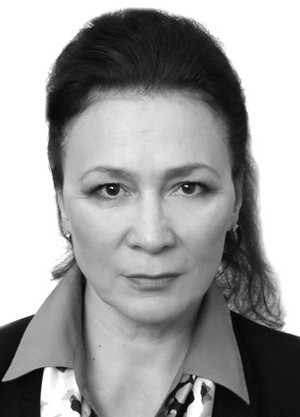Educational resource to optimize intellectual performance of adolescent athletes in unspecific and specific conditions
Фотографии:
ˑ:
Teoriya i praktika fizicheskoy kultury №6 2016, pp.97-99
UDC 796.011
PhD, Associate Professor G.A. Kuz'menko1
T.N. Lugovskikh2
1Moscow State Pedagogical University, Moscow
2Sports and Education Centre Sambo-70 of Moscow Sports Committee, Moscow
e-mail: kuzmenkoga2010@yandex.ru
Reported in the article are the adolescent athletes’ performance profiling study data obtained using questionnaire surveys; testing procedures including Tapping test, Compass test and Hidden Figures test; competitive performance analysis using reflexion procedure; educational assessments; descriptive statistical data; and difference meaningfulness ratings – that gave the means to identify some process regularities and outline the educational resource required to improve the quality standards of the adolescent intellectual performance. Subject to the study were 13-15 years-old adolescent trainees of the Sports and Education Centres. The adolescent intellectual performance profiles – on the natural background wavelike workability variations during the 600-second tests – were found to show three performance sagging trends. The competitive performance reflexive analysis data were also indicative of at least three problematic zones where the intellectual performance was found to sag due to the insufficient informational, motivational, cognitive, operational, emotional, volitional and regulative self-control abilities. It should be noted in this context that permanent competitions with equally strong opponents require the self-control abilities and qualities being well-developed and versatile. In cases of serious defeats, senses-, values- and motivations-focused self-control qualities are most beneficial in adolescent athletes, whilst win/ domination situations require the intellectual performance being duly balanced by the regulatory constituent of the self-control assets. The adolescent competitive performance optimizing educational resource implies the adolescents being trained to apply the relevant self-control strategies in model education/ training situations designed to simulate the most critical phases in the competitive process.
Keywords: adolescent, intellectual performance, dynamics, athletic performance, conditional specifics.
References
- Bogoyavlenskaya D.B. Psikhologicheskie osnovy intellektual'noy aktivnosti: avtoref. dis. … d-ra psikhol. nauk (Psychological grounds of intellectual activity: abstract of doctoral thesis (Psych.) / D.B. Bogoyavlenskaya. Moscow: SRI gen. and ped. pscyhology, 1987. – 49 p.
- Gnezdilova Z.Yu. Formirovanie intellektual'noy aktivnosti uchashchikhsya v protsesse obucheniya: dis. … kand. ped. nauk (Formation of students' intellectual activity during studies: PhD thesis) / Z.Yu. Gnezdilova. – Irkutsk: ISPU, 2001. – 165 p.
- Pseunok A.A., Mugotlev M.A., Silant'ev M.N. Osobennosti adaptatsii k trenirovkam yunykh sportsmenov, zanimayushchikhsya tsiklicheskimi i atsiklicheskimi vidami sporta (Specifics of adaptation to training sessions of young cyclic and acyclic athletes) // Teoriya i praktika fizicheskoy kultury. – 2016. – № 1. – P. 24.
Received 24.03.2016 г.




 Журнал "THEORY AND PRACTICE
Журнал "THEORY AND PRACTICE